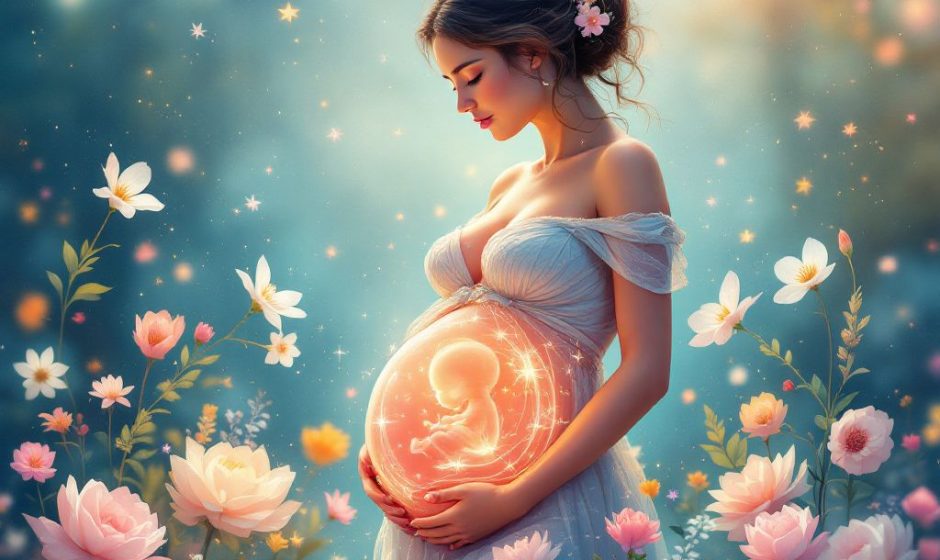So, you’re wondering about estrogen function in pregnancy? Trust me, you’re not alone. It’s one of those fascinating topics that’s often overshadowed by, well, just about everything else you never thought you’d need to know about growing a tiny human. But estrogen? It’s a big deal, secure the spotlight kind of big. Let’s dive in and peel back the science with an easy-going conversation that tells it like it is.
The Great Hormone Balancing Act
Imagine this: Your body transforms into a bustling hub, with hormones playing the roles of directors, producers, and stage managers, all working together to create this masterpiece—your baby. And among them, estrogen takes center stage. In fact, it’s one of the MVPs of pregnancy.
First things first, what does estrogen actually do during pregnancy? It doesn’t just manage one thing; it’s more of a multitasker. Estrogen is crucial for nurturing and maintaining pregnancy. From developing the fetal organs to boosting your blood flow, it’s like the Swiss Army knife in the pregnancy toolkit.
Let’s Break It Down
The Beginning: Hello, Estrogen Surge!
It all starts with a spike in estrogen levels. In early pregnancy, estrogen works alongside progesterone to get everything ready for the bebe. We’re talking about thickening the uterine lining to ensure a cozy spot for implantation. That little embryo needs all the support it can get to snuggle in and start to grow.

Now, here’s a head-tilting tidbit: During pregnancy, your estrogen levels can surge up to 1000 times higher than when you’re not preggo. This surge is partially why you’re riding a roller coaster of emotions—joyful tears watching baking shows or getting misty-eyed over adorable pet videos (don’t worry…, judgment-free zone here).
Aiding Growth: The Magic of Fetal Development
Fast forward a bit into the pregnancy journey, and estrogen kicks into gear by supporting fetal development. If you’re wondering how that happens, it’s all about communication! Estrogen plays a critical role in developing those all-important endocrine systems in your growing baby. That’s basically the system that produces any hormone under the sun for them—even before they meet sunshine themselves!
The dialogue estrogen initiates is a critical part of ensuring that organs, especially the adrenal gland and the liver, begin to form accurately. Simply put, estrogen is on constant babysitting duty, making sure everything is unfolding as it should.
The Pregnant Body: Pretty Magical Stuff
Let’s switch gears a bit and talk about your body–yeah, it’s doing some impressive things thanks to our friend, estrogen. Not only is estrogen busy supporting your baby, but it’s also working hard to prepare your body for birth and postpartum life. These changes impact just about every part of you—from your skin to your brain.
Blood Volume and Vascular Changes
Think of estrogen as a key player in pumping up your blood volume. It’s not just about giving you that “glow.” This blood volume increase is crucial for nourishing the placenta and baby. Plus, it helps support an increase in maternal blood flow—a massive thumbs up for ensuring that your baby is getting everything it needs.

Bear with me for a sec: ever notice maybe mysterious leg veins showing up or even nasal congestion out of seemingly nowhere? That’s also due, in part, to our buddy estrogen. As your blood vessels expand to accommodate increased volume and demand, side effects sometimes show up whispering, “Yes, it’s me, your increased blood flow.”
Preparing for the Main Event
The closer you get to full term, the more estrogen nudges your body into readiness for birth. This prep work involves relaxing some ligaments and joints around your pelvis, bit by bit, like a friendly nudge that eventually widens the space needed. Your body instinctively knows how to get game-ready thanks to estrogen!
And let’s not forget, after the grand finale (a.k.a., delivering your little one), estrogen’s influence is still underway—helping soothe into the breastfeeding phase by preparing breast tissue and glands. It’s remarkable really—considering that many women experience somewhat of a dip right after birth as the hormone tides settle back into prep mode again.
What Are Those Symptoms Again?
Now, thinking out loud here, but understanding estrogen function in pregnancy becomes a lot clearer when you consider the byproducts—hello, common pregnancy symptoms—bloating, breast tenderness, and nausea. Yep, you can tip your hat to levels of estrogen for these oh-so-classic signs of being pregnant.
Navigating Symptoms: The Steady Stream

There’s no denying the impact of hormonal changes during pregnancy, and estrogen does a good share of lifting the load here. It’s like how summer sun inevitably means ice cream melting down your hand, right? OK, maybe not exactly, but you get the point.
So, what’s the real takeaway here? It’s this fascinating weave of estrogen throughout various ongoing changes—physical and emotional shifts you’re bound to encounter the duration of pregnancy.
Wrapping It All Up: Why It All Matters
Understanding vast hormonal dynamics—especially estrogen function in pregnancy—adds a piece to the puzzle that is the pregnancy powerhouse journey. Think of it as getting on first-name terms with the mechanics operating behind the curtain during the making of a new life.
When someone nonchalantly asks, like they do, “What’s even the point of hormonal fluctuations?” break it down to this: Hormones create multifunctional balance, all directed towards creating optimal support, evolving from embryonic to fetal states.
So, the next time you’re swept up in a change-wind of symptoms or tapping your foot restlessly in anticipation of what’s next, know you’ve got the backstage pass to unfold these enriched and somewhat-hidden roles. Estrogen might not give you straightforward answers all the time, but its contributions are undeniable tapestries in weaving human creation—a force every mom-to-be befriends intimately whether realizing it or not.
And there you have it—a lowdown of sorts—spurring possibly more curiosity toward this hormonal maestro playing a vital act in pregnancy. And trust me, this isn’t just fluff talk but solid insight worth stashing for future mom-to-mom conversations, decoding those nine intriguing months.
Frequently Asked Questions
What are the benefits of using a hair mask in my hair care routine?
Using a hair mask can provide several benefits, including hydration, smoothing, strengthening, curl definition, heat protection, and damage repair. Hair masks infuse the hair with moisture, help coat the hair shaft to seal split ends, reduce breakage, and protect the hair from heat styling and environmental damage[1][4].
What ingredients should I look for in a hair mask?
Effective hair masks often include ingredients such as coconut oil, argan oil, shea butter, honey, avocado oil, green tea, and coconut water. These ingredients provide nourishment, moisturize, and protect the hair, offering benefits like softening, moisturizing, and protecting against damage[2][5].
How often should I use a hair mask in my routine?
You should use a hair mask whenever your hair feels dry, unmanageable, or in need of intense hydration. This can vary depending on your hair type and needs, but generally, using a hair mask once or twice a week can help maintain healthy and moisturized hair[1][4].
How do I apply a hair mask for the best results?
To apply a hair mask effectively, shampoo your hair first, then apply the mask, focusing especially on the ends where hair tends to be the most damaged. Leave the mask on for anywhere from 10 minutes to overnight, depending on the type of mask and your hair’s needs[1][4].
References



